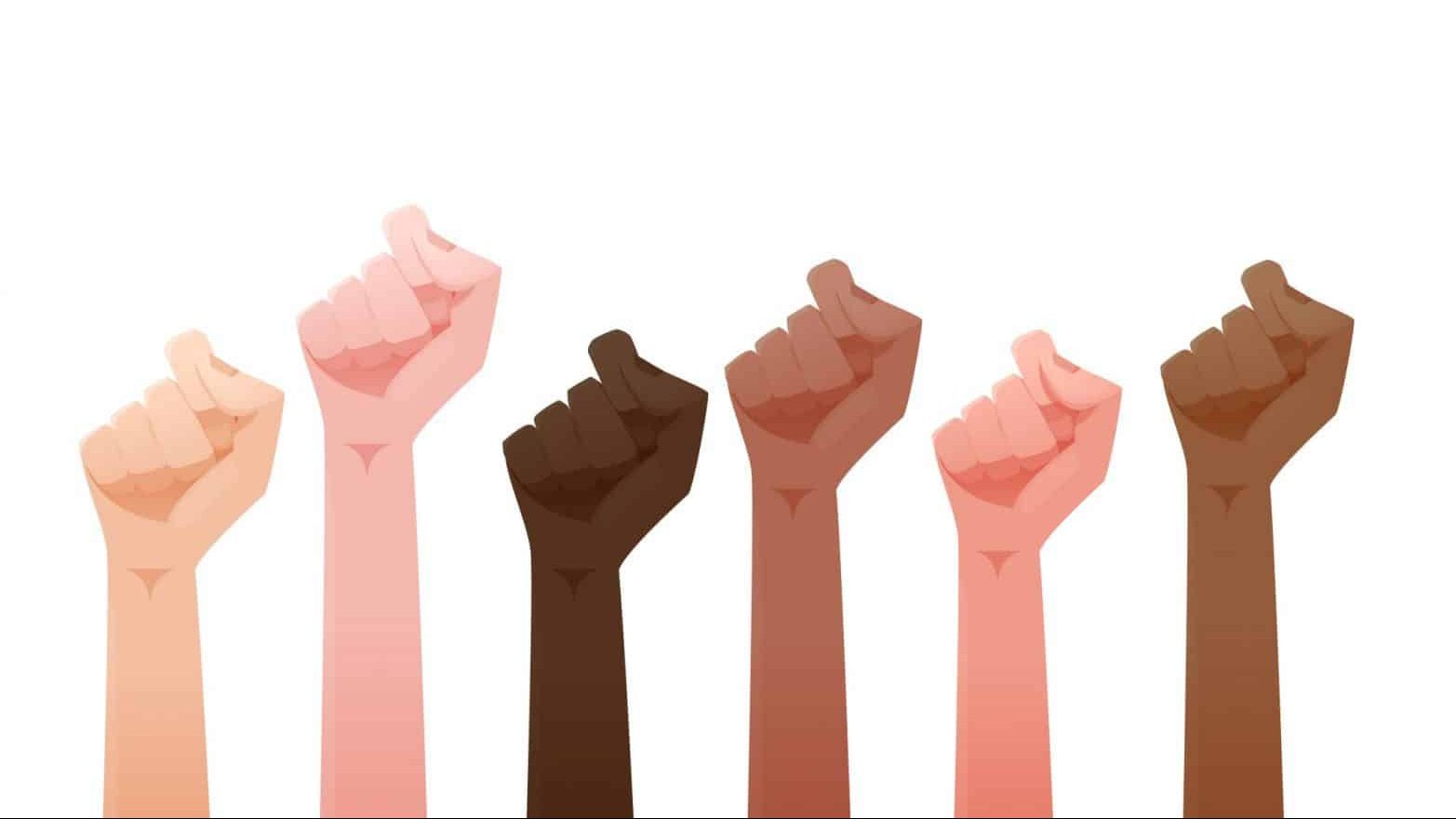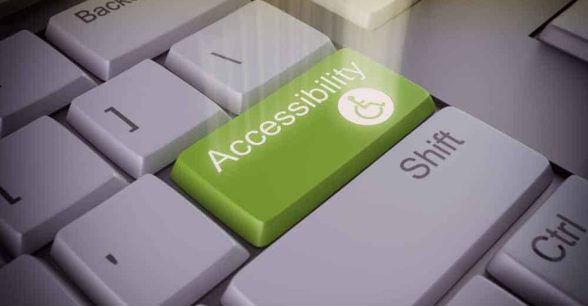Celebrating the Disability Community’s 2017 Wins
Disabled people have accomplished some really kickass things in 2017 that we should recognize. It’s not easy existing as a disabled person in an ableist world (and even tougher if you’re multiply marginalized), but I believe in celebrating our successes, particularly because it can be a vital part of self-care. It can be energizing to focus on the work we’ve done and its positive impact on our communities.
There were policy wins this year at both the national and local levels.
One of the most notable, of course, was that protesters, many from the disability community, made national headlines this year fighting to defend health care access. “We saved healthcare,” says Cara Liebowitz, an activist and writer who is involved with DC Metro ADAPT and was arrested protesting the Graham Cassidy bill. “Again, and again, and again.”
Along with the ongoing fight for healthcare access, there were other important policy wins across the country. The Democratic Party announced they would be backing the Disability Integration Act, a piece of legislation that affirms the right to live in our communities. Hearing aids for mild to moderate hearing loss were made available over-the-counter in 2017, after Senators Elizabeth Warren and Chuck Grassley introduced new legislation that was signed into law. “Hearing is a human right and hearing aids shouldn’t be the new status symbol of the rich,” says Janice Lintz, CEO of Hearing Access & Innovations, who offered testimony on behalf of the legislation in front of the FDA. The city of Seattle, Washington lost a legal suit that they said they have enough curb cuts, and the city is now required to build thousands more. ADAPT Chicago pushed Bobby Rush to recognize and support the disability rights movement and withdraw support for HR 620, also known as “ADA Education and Reform Act.”
In Albuquerque, New Mexico, the city’s Inspector General wrote a detailed report outlining many ADA violations and civil rights denials reported by a cross section of disability organizations. In Massachusetts, The Alternative Housing Voucher Program received a funding increase for the first time in years. And in New York, two class action lawsuits were filed against the Metropolitan Transit Authority because over 350 of New York City’s subway stations aren’t accessible, and the goal of the lawsuits is to make the transit system fully usable for people with disabilities.
According to disability attorney Michael Liner, another significant win for disability rights this year was the Social Security Administration finally recognizing nurse practitioners, physicians assistants and audiologists as “acceptable medical sources (AMS),” or AMS, to diagnose medical conditions in their respective fields. With the addition of physicians assistants and nurse practitioners, it’s easier for lower income people to get everything they need for a disability benefits (Supplemental Security Income or Social Security Disability Insurance) application.
Mia Ives-Rublee led the charge along with other disability rights activists to make the Women’s March on Washington more accessible to the disability community, and helped develop the Women’s March on Washington Disability Caucus. Members of the disability community worked with Women’s March organizers to disabled activists, coordinate outreach to the disability community, help with accessibility services, and make the Unity Principles inclusive of disability. “In the end, the estimated count of disabled people attending the Women’s March on Washington was around 42,000,” says Ives-Rublee. “It is believed to be the largest contingent of disabled people to attend a protest march in history. We still have a long way to go, but I truly believe we have made progress.”
The Disability March website was also created by disabled organizers as an online counterpart to the Women’s March, with a goal of making activism accessible. Their website highlights how people can get involved if they’re unable to physical attend an in-person event.
Rebecca Cokley, a Senior Fellow for Disability Policy at the Center for American Progress, believes coalition building is a significant part of sustaining momentum in the disability rights movement. This includes organizational commitment to inclusion. “I am very proud of the establishing of a disability policy think tank at the Center for American Progress (CAP),” she says. “CAP is the first of the progressive think tanks to commit to building its capacity on disability policy and I am hopeful we will not be the only ones.”
While many of this year’s disability rights wins were policy-focused, a lot of successes happened in creation of art by and for disabled people, as well as grassroots organizing. We need to value all kinds of activism when we’re celebrating our collective wins. “It’s important to amplify the work of all people working in disability justice space,” says Lydia X. Z. Brown, writer and organizer.
In partnership with Alice Wong, Vilissa Thompson, and the Disability Visibility Project, Rooted in Rights contributor s.e. smith created the Disabled Writers online database, a resource editors can use to hire journalists in the disability community and journalists can use to connect with disabled sources. Keah Brown started the hashtag #DisabledAndCute in 2017, which quickly went viral and empowered the disability community to share our stories and photos. The Deaf Poets Society, an online magazine dedicated to art and writing by and for disabled and d/Deaf people, celebrated its one year anniversary, as did Rooted in Rights Digital Manager Vilissa Thompson’s #DisabilityTooWhite, which started meaningful change around racism in the disability community. #BoycottToSiri started conversations about ableism in book publishing and the importances of centering autistic people’s voices and experiences.
Activism can be exhausting work, whether you’re creating poetry or journalism, doing academic research, or working on political organizing. As we move into 2018, it’s critical that disabled activists remember to celebrate small victories and practice self-care. “I think we all need to remember that living our lives with joy is a form of resistance that is not fully credited for its power,” says Ives-Rublee. “I always recommend that people make sure they take at least an hour each day to do something they love.”
About Rooted In Rights
Rooted in Rights exists to amplify the perspectives of the disability community. Blog posts and storyteller videos that we publish and content we re-share on social media do not necessarily reflect the opinions or values of Rooted in Rights nor indicate an endorsement of a program or service by Rooted in Rights. We respect and aim to reflect the diversity of opinions and experiences of the disability community. Rooted in Rights seeks to highlight discussions, not direct them. Learn more about Rooted In Rights



